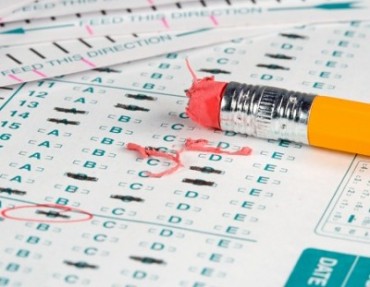
Late last month Emory University disclosed results of an internal investigation, which revealed that, for more than a decade, it had been cheating the system—sending inflated average SAT and ACT scores and class rankings to premier rankings organizations, such as US News & World Report.
Prompted by the university’s new Dean of Admission John Latting’s observations, Emory’s investigation revealed that two former Deans of Admission as well as the leadership of institutional research office were all deeply involved in the scandal, but found no involvement on the part of any current Emory employees, including University President Jim Wagner.
While president Wagner stated that he and his staff are “doing all (they) can to see that nothing like this happens again,” the news of a top-twenty university’s decade-long history of misrepresentation has fueled controversy in the education world over the nature of the university ranking system, as well as the prevalence of fraud.
Earlier this year Claremont McKenna College, another prominent and highly ranked school, disclosed that it too for years had been misreporting SAT scores in order to boost its national reputation. Further, the law school of the University of Illinois last year was caught misrepresenting job-placement data of its graduates in order to gain an edge.
Some experts believe these scandals represent only the tip of the iceberg. Dr. Althea Nagai, a research fellow at the Center for Equal Opportunity, says, “Because there’s no official organization nationally checking on admission data, there’s no way to know how extensive the misreporting is.” She further added that since “private schools and some public schools are not subject to Freedom of Information Acts (unlike public schools in states with FOIAs), we really have no idea the extent of data manipulation.”
While rankings manipulation often takes the form of fraudulent reporting of data, many university administrators have been able to raise their respective schools’ rankings through seemingly arbitrary and useless measures. For instance, in 2009, Clemson University staff members brought to light several methods of rankings manipulation, including increasing the number of small classes (while also enlarging already massive ones), and increasing the size of the alumni donor network through small, insignificant donations.
These stories have made many wonder about how much credence college rankings should really be given when choosing a school. A few institutions, such as Reed College in Oregon, have abandoned the rankings system entirely. Nevertheless, high-school students and their parents often base their decisions on where to apply on the annual rankings, focusing on the schools that hold the top spots. Knowing this, some of the nation’s top universities are under extreme pressure to boost their rankings if they want to compete for the best and brightest. Ironically, those officials who have been caught cheating have harmed the academic reputations they sought to bolster.
Repeated rankings scandals have called the integrity of college rankings systems into question. But, for now at least, the gloves-off fight to the top of the rankings continues, which means, in all likelihood, we haven’t seen the last case of rankings fraud.
Fix Contributor Alex Jakubowski is a junior at Northwestern.
Click here to Like The College Fix on Facebook.





Please join the conversation about our stories on Facebook, Twitter, Instagram, Reddit, MeWe, Rumble, Gab, Minds and Gettr.